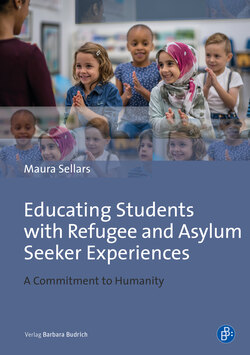Читать книгу Educating Students with Refugee and Asylum Seeker Experiences - Maura Sellars - Страница 19
На сайте Литреса книга снята с продажи.
Foucault: Knowledge and Education
ОглавлениеChallenging the commonly accepted adage that ‘knowledge is power’, Foucault focusses on the relationship between power and knowledge from a different perspective, conceptualizing their relationship as a dynamic association, not one that is statically dependent one on the other. He proposes that the powerful are the individuals who construct knowledge from their ‘expertise;’, and that the relationship between power and knowledge are so intricately entwined as to be considered seamless, thus creating the notion of ‘power/knowledge’. Mills (2003), describes this construct.
Foucault characterizes power/knowledge as an abstract force which determines what will be known, rather than assuming that individual thinkers develop ideas and knowledge (p.70).
Consequently, in each historical era, what is considered relevant and valued as socially constructed knowledge is then disseminated, regulated and validated through the external institutions of power, currently the prisons, hospitals and schools (Foucault, 1977). While much of the Foucauldian analysis undertaken by educationalists appears to have focussed on the negative nuances associated with normative power (Ball, 2012; Leask, 2012), Panopticism as applied to mandatory schooling and the certainty of disempowerment. Leask (2012) notes;
Using Foucault, or his toolbox, to understand education would thus seem a decidedly fraught affair: the more that oppressive power-structures are exposed, the less possibility there is for any kind of self-originating ethical intention on the part of teachers or students (p. 58)
[24] This perspective presents educational contexts as those which are totally dominated by carceral constraints, by authorities whose singular aim is to ‘supervise, transform, correct, improve’ (Foucault, 1979, pp. 302–3). Consequently, in this perspective, the classroom becomes the domain in which publicly accepted values and protocols are enforced in a similar fashion to the ways in which these are enacted in other institutional environments. They are...
…subject to a whole micro-penality of time (lateness, absences, interruptions of tasks), of activity (inattention, negligence, lack of zeal), of behaviour (impoliteness, disobedience), of speech (idle chatter, insolence), of the body (‘incorrect’ attitudes, irregular gestures, lack of cleanliness), of sexuality (impurity, indecency) ... (Foucault, 1979, p. 178).
Whilst there may be particular aspects of these measures of disciplinary power that remain embedded in homeland educational contexts of students with refugee and asylum seeker backgrounds as repressive power exercised as physical punishment, for the majority, disciplinary power is self -regulated in deference to possibility of being observed, and in deference to ‘norms’ that are accepted as the everyday behaviours, interactions and customary practices in any particular educational context. These ‘norms’ are not arbitrary but are determined by the mechanisms of the ‘biopower’ that is identified by Foucault. The means by which these ‘norms’ are translated into everyday practices and procedures that are taken for granted as ‘the way that things are done’. This process is achieved in schools by means of mandatory documentation. These national and regional laws, curriculum content and detail and policy papers which combine both aspects of power; juridical and normative; in order to regulate and record behaviours, ensure conformity to the ‘norms’ and monitor every aspect of student identity that is considered, by the manufactures of these documents, to be necessary to the sustained efforts of the systems. In this manner, data and statistics are available for the perpetuation of norms and also for the identification of trends which may be considered to be deleterious to society in general.
